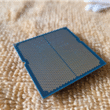Comrade Du Heng: A Pioneer in Space Environment and Debris Protection
Summary:
- Comrade Du Heng, a key figure in Chinese space science, passed away on November 24, 2025, at the age of 90.
- He significantly contributed to space environment research and space debris protection, overseeing numerous national projects.
- A farewell ceremony is scheduled for November 28, 2025, in Beijing.
Comrade Du Heng, a distinguished researcher and former deputy director of the National Space Science Center of the Chinese Academy of Sciences, has left an indelible mark on the field of space environment and debris protection in China. He passed away in Beijing at 5 a.m. on November 24, 2025, following a prolonged illness. His contributions to aerospace technology and national defense were pivotal, establishing him as a foundational figure in China’s space science community.
Du Heng was born in March 1935 in Shanghai. He began his academic journey in 1954 when he enrolled in the geophysics program at the Department of Physics at Peking University. Under the mentorship of Zhao Jiuzhang, he transitioned to a focus on space physics, graduating as a master’s student in 1965. From 1965 to 1995, he devoted his career to the National Space Science Center, engaging in extensive research on space physics and the space environment.
In his capacity as deputy director of the Space Center, Du Heng played a vital role as the Deputy Chief Designer for the Manned Spacecraft Application System and served as the chief expert in the Space Debris Action Plan. He was considered the main architect of space environment research in China, helming over ten significant national-level projects, including the influential "863" Program.
Du Heng’s crucial involvement in the "Two Bombs and One Satellite" initiative showcased his expertise in high-altitude nuclear explosion physics and missile-related research, laying a robust foundation for China’s national defense capabilities. In 1966, he led groundbreaking research on radiation protection for the "Dongfanghong-1" satellite, making it one of the world’s pioneering satellites to incorporate radiation protection measures. Moreover, he contributed to the compilation of the "Artificial Earth Satellite Environmental Manual," further solidifying his role in the field.
One of Du Heng’s notable accomplishments was the completion of China’s first high-level design report on space environment in 1989, titled "Research Report on the Concept of Space Station External Environment and Space Physics." He was instrumental in the development and launch of key satellite missions, such as “Atmos-1” and “Atmosphere-2,” as well as the "Shijian-4" satellite. His work also facilitated the establishment of a space environment monitoring and forecasting subsystem within the manned space project.
As a pioneer in the study of space debris, Du Heng made significant advancements starting in 1987 when he introduced space debris as a specialized research direction during the "863" program. In 2000, he led the establishment of the Special Space Debris Action Plan expert group under the Commission of Science, Technology and Industry for National Defense. Here, he formulated the pivotal "2000-2005 Space Debris Action Plan," laying out a strategic framework for the development of space debris research in China. His proposed project directives in 2005 set clear goals for the long-term evolution of the field.
Du Heng was renowned for his dedication to his country and possessed a visionary outlook combined with practicality and rigor. His ethos was marked by high moral standards and a commitment to mentorship, reflecting his desire to lift others as he ascended in his career. His life’s work, which significantly advanced China’s aerospace industry, established him as a vital contributor to the development of artificial earth satellites and manned space engineering missions.
The farewell ceremony for Comrade Du Heng will take place at 10 a.m. on November 28, 2025, in the Lan Hall of Babaoshan Funeral Home, allowing many to pay their respects to a man whose legacy will resonate in the annals of space science and technology in China.
In conclusion, Comrade Du Heng’s passing marks the end of an era in Chinese space exploration and research. His contributions to the fields of space environment and debris protection will be remembered as foundational, ensuring that his pioneering spirit continues to inspire future generations of scientists and researchers in China and beyond.









